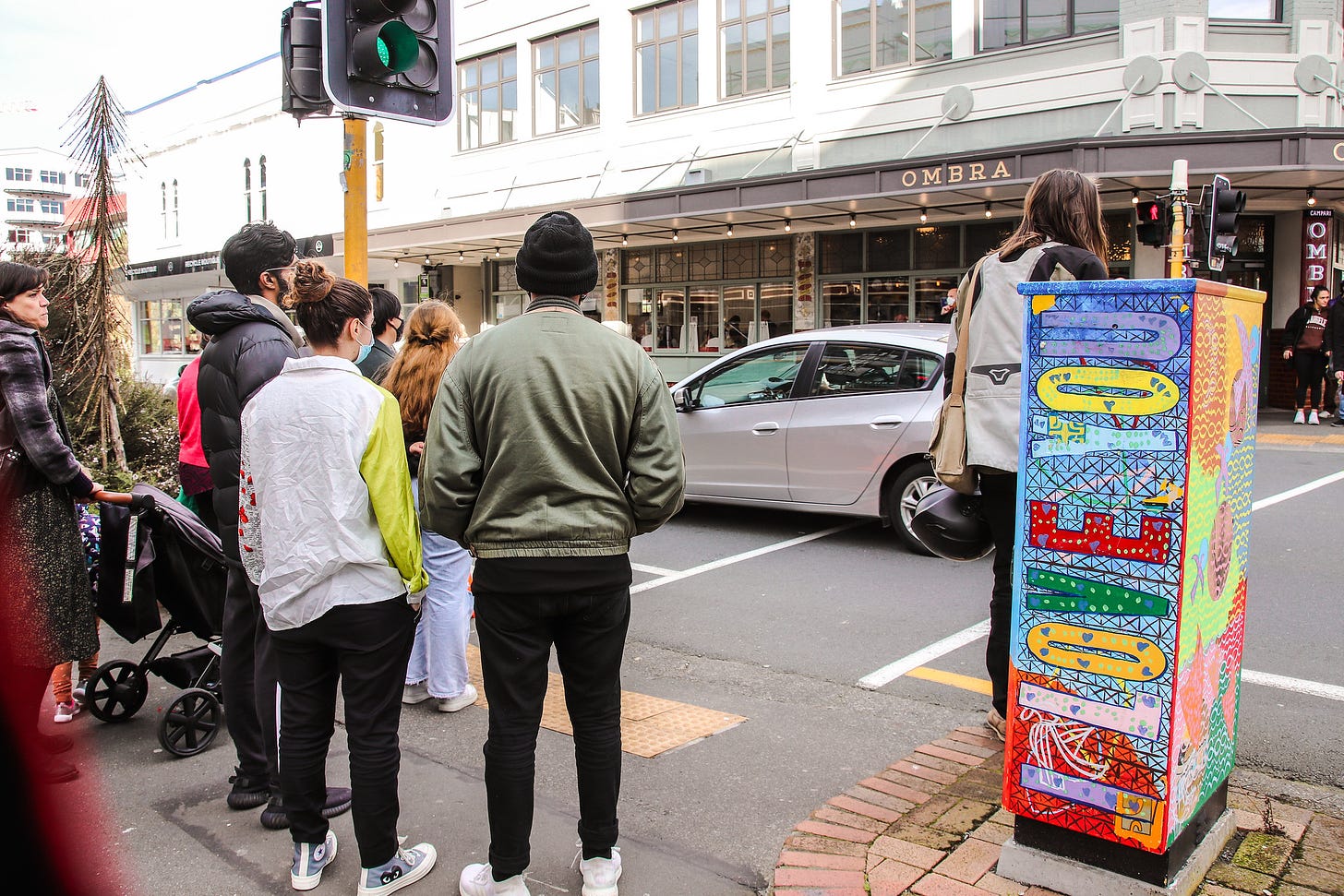TLDR: The Labour Government has significantly loosened its migration settings in an effort to dampen wage inflation pressures ahead of the summer tourism season and reclaim ground lost in opinion polls last summer.
But it has yet to ‘go nuclear’ and throw open the doors to guaranteed and/or faster pathways to residence for many more categories of lower paid workers on temporary work visas. That is still possible if the wage inflation and political pressures remain intense going into the election late next year.
Aotearoa-NZ is also having to battle much harder for workers and students to choose us over Australia or Britain or Canada, who are also loosening their settings in desperate attempts to fill open positions and take the edge off wage inflation.
Paid subscribers can see more detail and analysis on the loosening of migration settings below the paywall fold and in the podcast above.

Labour relents after just three months
Under intense pressure from employers wanting lower-wage workers to fill staffing gaps for the summer, the Labour Government has loosened the migration settings to try to ease inflation pressures and knock out one of the Opposition’s main prongs of attack.
Just three months after releasing a tough new immigration ‘rebalance’ aimed at lifting wages for those working on temporary work visas to the median wage of $27.76/hour, the Immigration Minister Michael Wood yesterday announced an easing of the settings and cut the wage rules for years for the aged care, construction, meat processing, seafood and adventure tourism sectors. He also doubled the cap for working-holidaymakers, who can work for anything above the minimum wage, and extended visas for backpackers already here.
I wrote in my August 1 Dawn Chorus that Labour was set to pull the migration lever to remove some of the wage inflation pressure and try to claw back National’s lead in the opinion polls.
“Labour may choose before the next winter’s flu season to pull hard on the migration lever to scuttle National’s continued calls before the election. It no longer has rising house prices, suppressed wages and surplus labour as reasons to keep the controls tight. National has already promised to loosen the taps as soon as it’s elected. That means looser migration settings are likely, sooner or later.” My August 1 Dawn Chorus.
Low wage sectors given years of reprieve
And so it has come to pass
Wood made the announcement yesterday afternoon at Sky City to emphasise the help it wanted to give the tourism and leisure sectors ahead of the summer.
The key details of the changes as laid out in this MBIE document, included:
a doubling of Working Holiday Scheme cap for 2022/23 to allow an extra 12,000 working holiday makers to enter;
the working holiday-makers visa of people already here or about to arrive and that are set to expire between 26 August 2022 and 31 May 2023 will be extended for 6 months;
those who held working holiday-maker visas for 2020, 2021 and 2022, but couldn’t come because of Covid, will be automatically issued visas so they can come between October 1 and January 31 and work for 12 months; and,
the extension to exemptions for the median wage rule ($27.76/hour) for workers coming under the new Accredited Employer Work Visa for two to three years.
The industries exempted, their exemptions and the discounted wages are as follows:
the aged care sector extended for two years at $26.16/hour, with ‘level 4’ workers provided a two-year pathway to residence;
the construction sector extended for two years at $25.00/hour;
the meat processing sector extended for two years at $24/hour;
the onshore seafood processing sector extended for three years at $24/hour, with updates each year to maintain it at 86% of median wage;
the offshore seafood industry extended at minimum wage plus $3/hour for three years, although rising by rising $1/year until hitting median in October 2025; and,
another feature of the announcement was a plan to replace the current caps with a new Pacific worker programme from 2024, similar to the RSE scheme. This would represent a major increase in the scale of the RSE scheme.
Michael Wood’s framing of the rebalanced rebalancing
Wood said the immigration rebalance was always designed to be flexible to deal with changes in scenarios.
“As the world recovers from COVID-19, labour shortages continue to be a persistent ongoing global symptom.
“Our immigration rebalance was designed during the pandemic and included the flexibility to respond to scenarios, such as the global labour shortage we now face. These measures are about providing immediate relief to those businesses hardest hit by the global worker shortage.
“We have listened to the concerns of these sectors, and worked with them to take practicable steps to unlock additional labour, we know these measures will help fill skills gaps, as businesses work towards more productive and resilient ways of operating.” Immigration Minister Michael Wood in the announcement.
Today’s deeper dive
My daughter and I are fascinated by the story of Alan Turing, the British (and gay) mathematician who cracked the Enigma code and did a lot of the work that led to the creation of modern computers. He also dreamed up the Turing test of whether a computer was intelligent.
This piece by Will Dowd on his Substack The Lunar Dispatch is sad and beautiful all over again and revealed things about Turing I did not know.
Some fun things
Ka kite ano
Bernard















Share this post